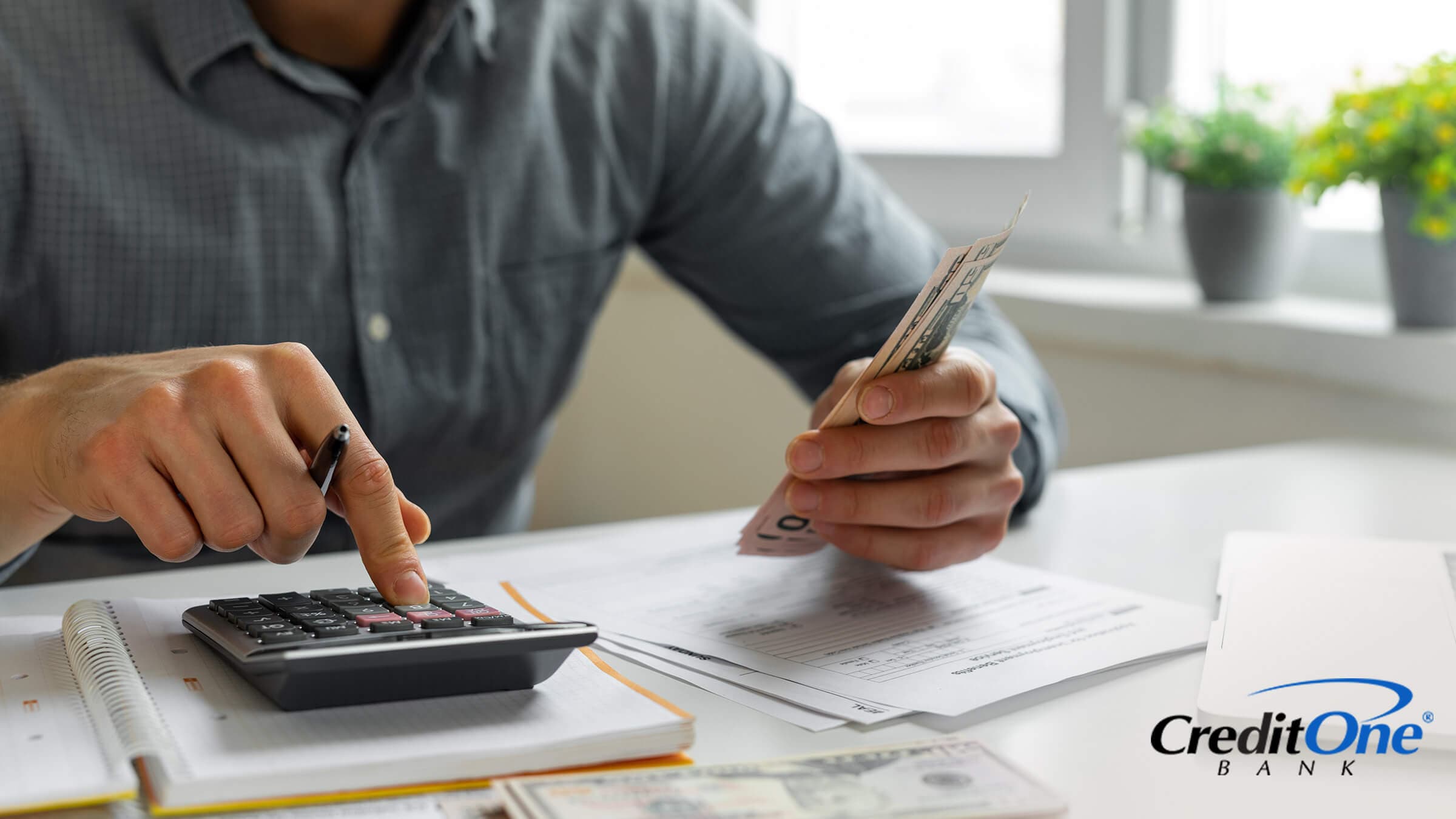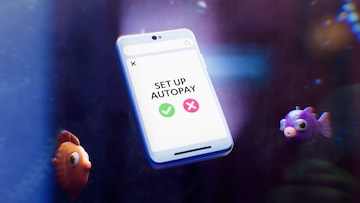
Is It Bad to Pay Your Credit Card Early?
May 15, 2024
Topics:
Credit CardYou know it’s bad to pay your credit card late. But is it bad to pay your credit card early?

Introduction
You probably don’t even have to ask whether it’s bad to pay your credit card late. You already know that paying late results in late fees, a possible interest rate increase, and black marks on your credit report. But is it bad to pay your credit card early?
The short answer is no. It’s not bad to pay your credit card early, and it even comes with many benefits. Unlike some types of loans and mortgages, credit cards welcome your money any time you want to send it.
What Happens if You Pay Your Credit Card Early?
If you pay your credit card bill early — whether the minimum payment, full balance, or something in between — that money is applied to your account balance. If you pay off the whole thing, you won’t need to make any more payments during that billing cycle. And if you have a grace period, you might not even have to pay interest.
If you don’t pay the full balance, there’s no rule saying you can only make one payment per billing cycle. Maybe you find smaller amounts easier to afford, so you make payments every two weeks on payday. If they add up to more than your minimum, you could be tackling your debt faster while still avoiding late fees.
On top of that, paying early has additional benefits that can positively impact both your bank account and your credit score.
Benefits of Paying Your Credit Card Early
Paying early lets you avoid any possible late fees, as long as you’re paying at least your minimum amount due. You can also save money on interest charges, which are typically calculated on each day’s balance. And of course, you’ll be reducing your debt faster by paying it off sooner.
But these benefits specifically apply to credit cards. The confusion around this topic comes from the fact that some credit should be paid early, and some credit should not.
So before we go further, it’s important to understand the difference between the two main types of credit: installment credit and revolving credit.
Installment credit includes car loans, student loans and mortgages, where you’re approved for one lump sum upfront and pay it back over time.
Installment loans typically come with a term (such as a 5-year car loan or a 30-year mortgage), a rate of interest that you pay for the privilege of borrowing the money, and a set amount that you’re expected to pay each month over the term of the loan. Once you pay off the whole thing, you’re done.
But paying early on installment credit is not always in your best interest (pun intended). In fact, installment loans may come with a prepayment penalty because the lender wants you to keep paying for the length of the term. These loans often have low interest rates to make this scenario manageable and attractive.
Revolving credit includes credit cards and lines of credit where you’re allotted a certain limit, and can use whatever is available at any given time. After you pay it down, there’s more available to spend.
If you have a credit card with a $500 credit line, and you spend $100, you have $400 left. If you pay that $100 right away — or at least within the grace period — you’re back at $500 in credit and would owe no interest.
Unlike installment credit, there are benefits to paying revolving credit early. Besides saving money on interest and fees, it can also have a positive impact on your credit score.
Downsides of Paying Your Credit Card Early
While you might be penalized for paying off a loan early, there aren’t many drawbacks to paying your credit card early. The pros far outweigh the cons.
One potential downside would be if an early payment took money from your bank account that you needed for other things. But it’s also a great opportunity to strategically manage your cash flow. Paying right before the due date could leave you scrambling to make it work, but paying early lets you relax and take care of it when you have the available funds.
Another thing to consider is your credit utilization ratio (CUR). This is the amount of revolving credit you have that you’re actually using at any given time, and financial experts recommend keeping it between 10% and 30%.
To calculate your CUR, divide your current debt (or balances) by your total revolving credit limits. While you want to keep it low, you don’t want it to be zero. If you constantly have no credit card balance because you pay off each purchase immediately, it can look like you don’t use your credit at all, and that doesn’t help build your positive credit history.
When figuring it out, remember that your CUR calculation only includes your revolving lines of credit. Installment credit is based on your debt-to-income ratio (DTI) instead.
Does Paying Your Credit Card Early Affect Your Credit Score?
Regularly paying off your credit card early (like several weeks before the due date) usually leads to an increase in your credit score over time, because of a few factors.
Reduce Credit Utilization
An early payment positively affects your credit score by lowering your CUR. Remember that keeping it at 30% or lower is ideal. So if you’ve gone over that, paying the balance down (or off) as soon as possible can bring you back into the optimal CUR range. When you charge a bit each month and pay it off before the due date, you’re establishing positive credit and payment histories.
Reduce Interest Charges
The last day of your billing cycle is called the “statement closing date,” which is usually at least three weeks (21 to 25 days) before your due date. This is the day your bill is mailed out to you, or becomes available online if you’ve opted for paperless statements. Any activity after that goes towards the next billing cycle.
Most credit card issuers calculate your fees on an average daily balance rather than the monthly amount, so the earlier you pay your bill in a given cycle — preferably the day you receive it — the lower that average daily balance will be.
For example, if you have a $500 balance at the end of the previous cycle, and you pay it off 10 days into the new period, the interest fee will be based on an average daily balance of $150/day.
That’s because you had a balance of $500 on the first nine days, which adds up to $4,500. And zero for the rest of the month in the 30-day billing cycle. So $4,500/30 is $150.
On the other hand, if you pay it off just four days into the new period, interest will be based on only $50/day. $500 x 3 days is $1,500, divided by 30 is $50.
Avoid Late Fees
On top of interest charges, your credit card company probably charges a late fee for missing your payment date. If you’re paying your credit card bill early, you’re not going to incur these late fees. However, if you pay too early — before the statement closing date — it won’t count towards the next month. So if you still have a balance on your card after receiving your bill, you still have to pay at least the minimum amount before that new due date.
When Is the Best Time To Pay Your Credit Card Bill?
As far as the best day to pay your credit card bill, it’s as soon as you can after receiving the statement and before your due date. Don’t wait until the last second and don’t try to pay it before the billing period closes, unless you’re going to keep checking for any new transactions to post. Sometimes you might think you’ve paid off your entire balance, but you didn’t account for any outstanding or delayed charges, including the annual or monthly fee.
Bottom Line
Paying your credit card bill late is a bad habit to get into, but paying it early can give you some advantages. You’ll avoid late fees, pay less in interest (if you carry a balance), have access to your available credit sooner, and potentially boost your credit score.
If you’d like a credit card that lets you set your own due date, so you can pay when it’s most convenient to you, see if you pre-qualify for one from Credit One Bank.



